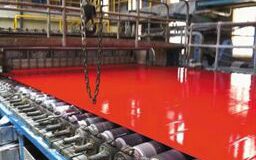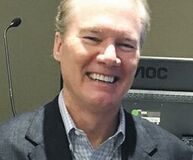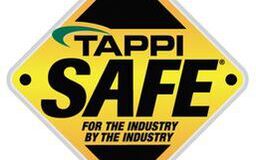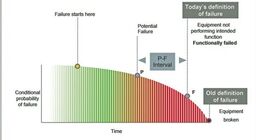Environmental Affairs: Everyone Has a Part to Play
Mills face many challenges in achieving water and air quality goals. To help meet these challenges, environmental group leaders have many resources, including peers inside the mill… and PEERS (TAPPI’s Pulping, Engineering, Environmental, Recycling and Sustainability Conference) outside the mill.
Dan Curry, PEERS Environmental and Sustainability Track leader, explains. “Environmental and sustainability issues need to be part of the way we do business, integrated into everyday operations. Everyone has a part to play—it’s not just the responsibility of the environmental group.” Curry is a senior client manager for TRC Environmental Inc. with more than 30 years environmental experience in the industry.

To meet and learn from peers outside the mill, he recommends the PEERS Conference, which will be held October 28—31 in Portland, OR. PEERS conference technical tracks, including the Environmental and Sustainability tracks, are developed by real working professionals associated with the pulp and paper industry. Topics focus on enabling process engineers and area managers to make decisions that help improve productivity and reduce costs. Sessions are designed to address actual challenges mill teams face each day. “Where there are ongoing issues, we put together a panel-type discussion to offer different perspectives. To introduce new or developing technologies and case studies, we use more of a presentation format. And sessions include Q&A to really engage attendees,” Curry says.
TOP ISSUES
Curry identified residual nutrients in wastewater as an issue driving concern in the industry right now. It’s a critical factor in renewing NPDES permits, which address water pollution by regulating point sources that discharge pollutants to US waters. Created in 1972 by the Clean Water Act, the NPDES permit program is authorized to state governments by the EPA to perform many permitting, administrative, and enforcement aspects. “There are some states that are ahead of others in terms of regulating, but residual nutrients and permit renewal is going to continue to be a driver, both from a regulatory perspective and from a technical capabilities perspective,” says Curry.
“At the PEERS conference, we have a session on wastewater treatment. We’re also going to be running a session on regulatory issues facing the industry, particularly in the Pacific Northwest because the conference is being held in Portland,” he continues. “So we will discuss regulatory development in the Pacific Northwest, and how those issues will impact operations there, both financially and operations-wise. We will also have tracks on environmental issues, both air and water, and sustainability discussions.”
PEER-TO-PEER ENGAGEMENT
Preparing for this year’s conference, the program committee conducted an ambassador program that brought volunteers and TAPPI staff into a number of mills to speak with mill management and staff. Together they identified the most important topics to cover, as well as the chief returns on investment attendees could bring back to the workplace.
“We also discussed how PEERS can serve as a training tool for mill personnel,” comments Conference Chair Mark LeBel of Andritz. “This year, we are excited to offer Continuing Education Units (CEUs). The feedback was that this would be helpful to all employees attending—particularly those with professional engineering licenses. Plus, special pricing allows mills to take advantage of reduced fees while
giving them the flexibility to send multiple people over the course of the conference.”
A total of eight conference tracks will focus on relevant mill issues, featuring career development components. The conference will also include:
• Workshops designed to provide hands-on experience that can be put to use immediately in all mill areas
• Hot Topics Breakfasts focusing on current operational issues
• New Technology Showcases offering the latest in mill equipment and operations
Once again, PEERS is co-located with the International Bioenergy & Bioproducts Conference (IBBC), bringing together experts from around the world interested in leveraging the knowledge and assets in the pulp and paper industry to produce fuel, energy, and chemicals from biomass. PEERS attendees have full access to the IBBC technical program.
Curry says that, from an air and water management standpoint, he hopes attendees will leave PEERS with two chief takeaways in mind. “Managing environmental risks needs to be part of both how we operate our facilities and how we conduct business as an industry. The success of our industry is dependent on a healthy environment and we have an obligation to be good stewards of that environment. By integrating environmental and sustainability issues into all aspects of the business, we are better able to anticipate both the strategic and the operational risks. Sustainability is not something that can be bolted on at the end—it must be integrated into business planning and day-to-day operations.”
Failure to follow this approach can have dire consequences. “A non-integrated approach toward managing environmental risk will be inefficient and ultimately not effective. That leads to higher costs and poor public image, as well as potentially jeopardizing access to capital and market share,” Curry says.
To learn more about attending PEERS, and for program details and special mill pricing, visit www.tappipeers.org.




